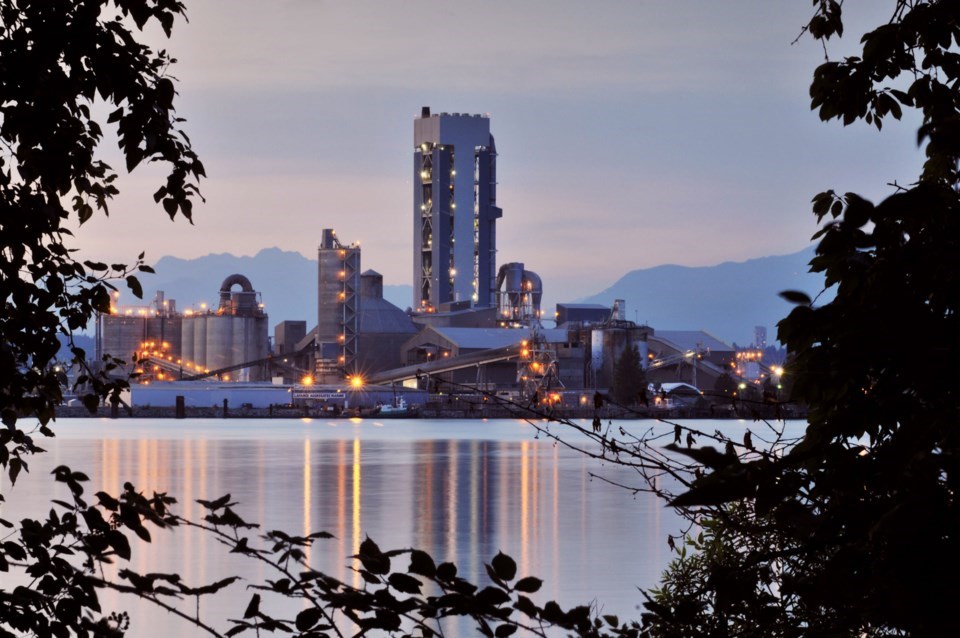The carbon dioxide that spews from flue stacks at the Lafarge cement plant in Richmond will be turned into a type of carbon neutral wax used to make plastics, lubricants and cosmetics.
Lafarge Canada is working with Vancouver carbon capture company, Svante, and Dimensional Energy -- an American company that specializes in making carbon-neutral fuels -- on a project that will combine the CO2 captured at the Lafarge cement plant in Richmond with hydrogen to create a carbon neutral synthetic wax.
Since 2019, the Lafarge cement plant in Richmond has been using Svante carbon capture technology to capture one tonne per day of CO2. One of the challenges for carbon capture is what to do with the CO2 once captured. Unless an industry has access to a dedicated CO2 pipeline and geological sequestration, it needs to find some use for the CO2.
“Throughout the project, Lafarge has directed efforts to determine a suitable end use for the captured CO2,” Lafarge said in a press release. “Given the lack of CO2 transportation and sequestration infrastructure in southern British Columbia today, utilization of captured CO2 is fundamental to the decarbonization of large industries in the region.”
Working with Dimensional Energy, Svante and Lafarge will now use the CO2 to produce 1.5 barrels of synthetic hydrocarbons – specifically, a type if premium grade wax that is a precursor for a number of products, including lubricants and cosmetics.
“Dimensional Energy’s technology will convert the CO2 with green hydrogen to syngas using their patented reactor and catalyst technology,” the company said. “By utilizing this technology for production of the fuels and products that people use every day, the goal is to lower the carbon intensity of our entire economy once scaled.”
"Carbon capture is an important lever in our net-zero roadmap,” said Stephanie Voysey, head of sustainability and environment for Lafarge Western Canada. “However, for a carbon capture project to succeed, it must be paired with permanent geologic sequestration or utilization technology that will permanently isolate the CO2 in a specific media or product.
"If this pilot can be scaled to capture and use all facility emissions, it would be a first of its kind project for Lafarge and advance export and global adoption of this technology.”

